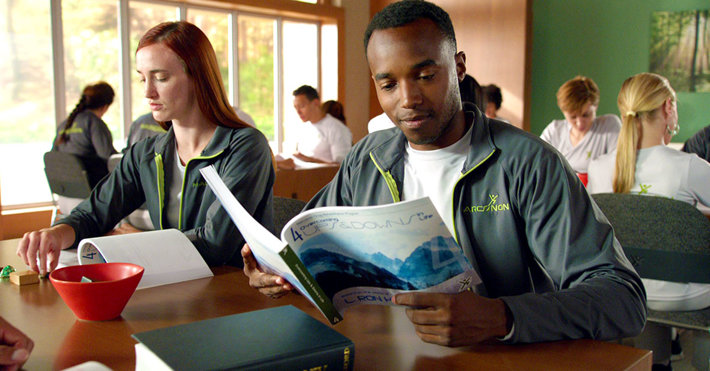Which Life Skills are the Most Vital to Gain During Drug Rehab?

When a family begins the search for a drug rehab, they’re often starting from scratch. They don’t usually know how to differentiate a rehab that is likely to be effective and result in lasting sobriety from one that might primarily warehouse their loved one while they collect insurance payments.
There’s many different factors that can be evaluated while making a choice among available rehabs. One of the most important factors to look at is whether or not a rehab has services that develop a recovering person’s life skills.
Why are Life Skills Important?
It is very common for a person who’s been addicted for a while (several months, years or even decades) to lose their life skills. Consider a person who was addicted to painkillers and then heroin for five years or so. Increasingly through those years, this person placed the acquiring and using of addictive substances ahead of other interests in his (or her) life. He may have stolen money from his spouse or parents. He may have been homeless and jobless and stole merchandise from stores so he could get his drugs.
He may not have had access to showers or toothbrushes or clean clothes for months. If someone tried to sit down and convince him to improve his personal or mental condition, he simply fled. The accumulation of despair and the physical deterioration that results from this lifestyle culminates in a loss of the ability to interact with others or make decisions about self-improvement.

Let’s look at another case where a person was addicted to drugs for five years but she began heavily using drugs when she was young—say between fifteen and seventeen. In this case, it’s likely that this individual had not yet grown into adult life skills yet. So during this person’s five years of addiction, her maturity stayed frozen in her teenaged years.
While some teens were learning to think with the consequences of their actions, this person didn’t develop that skill. She never learned how to admit responsibility for the condition her life was in. If she doesn’t develop adult life skills as part of her rehabilitation, it’s quite possible she will not be able to break free from her addictive habits and thinking patterns. She may, as is so common with addicted people, continue to blame others for her own problems.
It is a good idea to specifically ask staff at any rehab you are considering how they help those in recovery develop life skills. Are there classes? Are the students of these classes encouraged to apply these lessons to their lives? Are they required to actually interact with the family and friends they harmed to try to improve these relationships?
Any rehab program based on the Twelve Step program includes steps that involve making amends to those that have been harmed. A rehab program may or may not actually provide enough instruction and guidance to rehabilitate or develop the life skills that would enable a person to succeed at the self-examination and amends steps of a Twelve Step program. When a person fails in a program like this, it might be because they lost or never developed the social or life skills they'd need to take an honest look at themselves or their need to offer amends.
So What Life Skills are Vital? And Why?
For a person to succeed in staying sober and productive after rehab, they are going to have to be able to manage their reactions and emotions in difficult situations. Those who have relied on drugs to blot out pain and anxiety for years must now learn to cope with difficult events in their lives. A severe personal setback, a relationship breakup, an intense argument, being fired from a job—any of these situations might at one time have sent them looking for alcohol, opioids, marijuana or cocaine to dull the pain.

Therefore, the skills they must have are those that would be needed to weather difficult situations like these. Just below, you’ll find a list of abilities that help a person maintain stability, even when bad things happen.
- Dealing with difficult or angry people
- Recognizing and coping with environmental triggers
- Possessing a renewed sense of morals and values
- Knowing how to set realistic goals
- Being able to methodically work toward those goals
- Dealing with setbacks or failures
- Coping with losses without giving up
- Being honest with yourself and others
- Recognizing your full responsibility for your own sobriety and success
- Accepting support and help from others
- Being willing to help others without any idea of gain or compensation
Some rehabs offer services or training referred to as “anger management.” If, in rehab, you develop life skills like the above, your life may not make you unmanageably angry. You may not feel uncontrollably anxious or stressed. A person who develops real life skills—whether they gain these skills in rehab, in school or in life—can rise above a bare struggle for daily existence. He or she can begin to build a positive life.
And when something serious does happen and a person’s life skills are strong, even if he is knocked to his knees for a while, he is much more capable of picking himself up and dusting himself off.
Any person’s life includes losses and upsets, sometimes serious ones. For a person in recovery, long-lasting sobriety requires skills like the above as a strong foundation to keep the individual from resorting to drugs or alcohol to make the pain go away.
Are Life Skills The Focus?
If you’re looking for a drug or alcohol rehab, take this list of life skills with you. Use it to ask questions of the rehab staff. Ask them how their program addresses some of the skills on this list. Be very specific in your questions and demand specific answers.
Then ask yourself if their training solutions make sense to you. If you were lacking these skills, would their training help you develop them? The development of strong life skills can be the difference between success and failure after rehab. These are very critical questions to ask.
Sources:
- https://www.narconon.org/drug-rehab/life-skills.html
- https://www.narconon.org/drug-abuse/signs-symptoms-vicodin.html
- https://www.drugabuse.gov/publications/research-reports/marijuana/how-does-marijuana-use-affect-school-work-social-life
- https://www.ncbi.nlm.nih.gov/pmc/articles/PMC4553654/


 ®
®